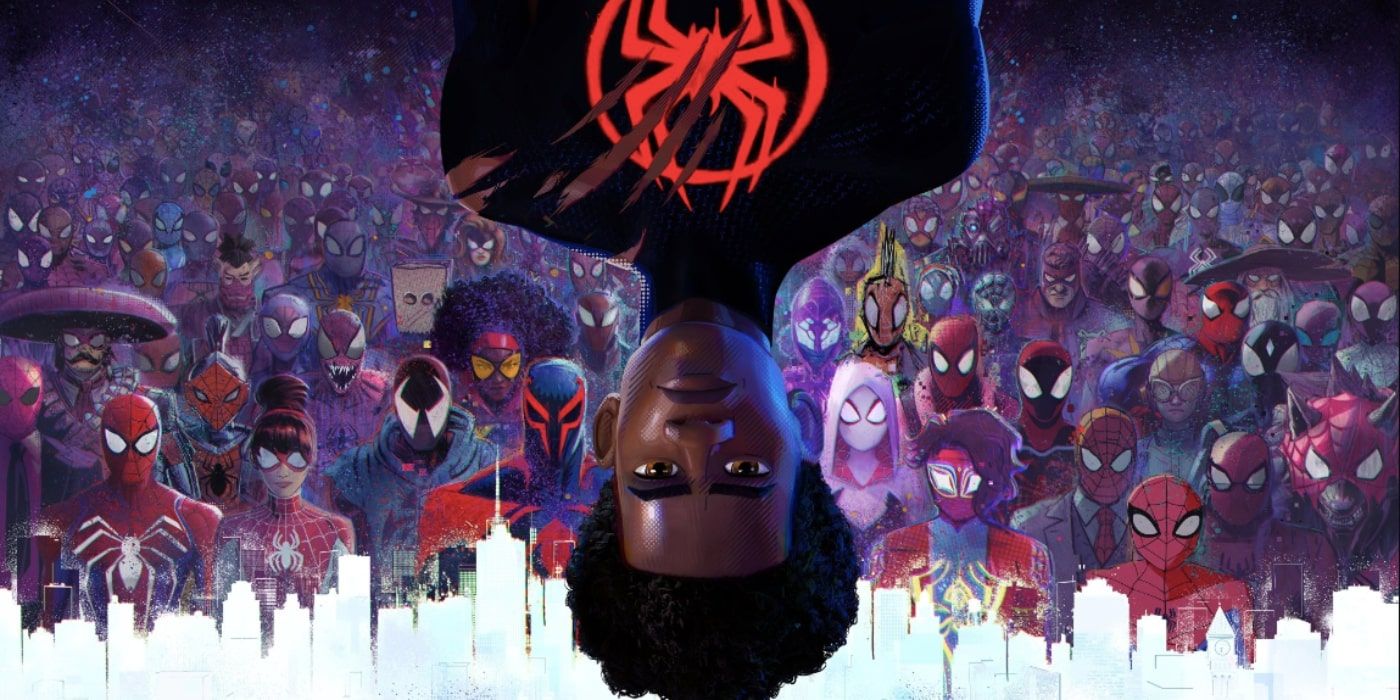Spider-Man: Across the Spider-Verse challenges heavily guarded comic book story tropes with a well-crafted multiverse movie.Spider-Man: Across the Spider-Verse had everything going for it when it was released. Audiences had high hopes (and expectations) for the film after the promise of a worthy sequel to 2018’s Into the Spider-Verse; Spider-Man fans were also spoiled with No Way Home, arguably the franchise’s best crossover film to date. No one anticipated Across the Spider-Verse would break new ground in storytelling, though, finding new ways to present multiverse concepts as essential but inherently problematic. The film even coined a new term to describe this: the canon event. In an interview with IndieWire, Across the Spider-Verse’s co-director Kemp Powers reveals the creative process that shaped the movie.Across the Spider-Verse introduced the concept of the canon event, a constant and pivotal moment all the Spider-Man variants must experience in their timelines to progress. The sequel hinged on the premise that the fabric of the Spider-Verse depends on keeping the sanctity of these canon events, such as a Peter Parker variant being bit by a spider, or experiencing the death of a relative like Aunt May or Uncle Ben. The movie even has a true gatekeeper in Miguel O’Hara as the main villain; Powers explained how Oscar Isaac’s character was a metaphor for stalwart fan communities.
Spider-Man: Across the Spider-Verse challenges heavily guarded comic book story tropes with a well-crafted multiverse movie.
Spider-Man: Across the Spider-Verse had everything going for it when it was released. Audiences had high hopes (and expectations) for the film after the promise of a worthy sequel to 2018’s Into the Spider-Verse; Spider-Man fans were also spoiled with No Way Home, arguably the franchise’s best crossover film to date. No one anticipated Across the Spider-Verse would break new ground in storytelling, though, finding new ways to present multiverse concepts as essential but inherently problematic. The film even coined a new term to describe this: the canon event. In an interview with IndieWire, Across the Spider-Verse‘s co-director Kemp Powers reveals the creative process that shaped the movie.
Across the Spider-Verse introduced the concept of the canon event, a constant and pivotal moment all the Spider-Man variants must experience in their timelines to progress. The sequel hinged on the premise that the fabric of the Spider-Verse depends on keeping the sanctity of these canon events, such as a Peter Parker variant being bit by a spider, or experiencing the death of a relative like Aunt May or Uncle Ben. The movie even has a true gatekeeper in Miguel O’Hara as the main villain; Powers explained how Oscar Isaac’s character was a metaphor for stalwart fan communities.
#SpiderVerse #Director #Explains #Movie #Defied #SpiderMan #Canon
Note:- (Not all news on the site expresses the point of view of the site, but we transmit this news automatically and translate it through programmatic technology on the site and not from a human editor. The content is auto-generated from a syndicated feed.))



